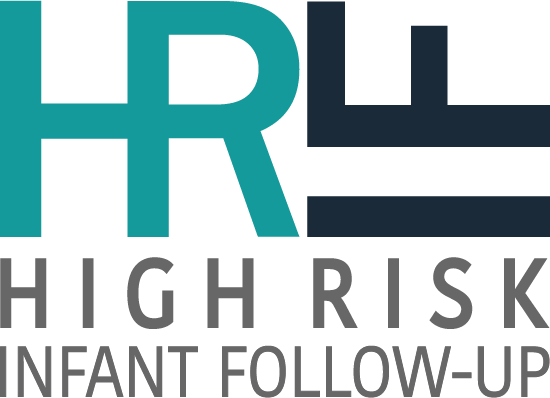Visits most often occur between 4-8 months, 12-16 months, and 18-36 months after birth and include the following:
A comprehensive history and physical examination, including a neurologic assessment
The physical examination and neurologic assessment are completed by a CCS-approved (or “paneled”) pediatrician or neonatologist. The assessment can also be completed by a pediatric nurse practitioner (PNP) practicing under the direction of a CCS-approved physician.
Developmental assessment
A developmental assessment is conducted at each of three standard visits. During an infant’s third standard visit (between 18-36 months), they undergo more extensive developmental testing, typically using the Bayley Scales of Infant Development (BSID) 3rd Edition. Developmental assessments are conducted by either a CCS-approved pediatrician/neonatologist, PNP, nurse specialist, physical therapist, occupational therapist, or psychologist, with training in the evaluation of motor and sensory development of high-risk infants.
Family psychosocial and needs assessment
An initial family psychosocial and needs assessment is conducted by a CCS-approved social worker, PNP or nurse specialist with expertise in family psychosocial needs. If a significant need is identified, the family will be referred to a social worker for additional assessments, as required.
Hearing assessment
Infants who did not undergo a hearing assessment in the hospital prior to discharge will be referred for one during their HRIF visits. Infants under six months of age will be referred to an Infant Hearing Screening Provider, certified by the Newborn Hearing Screening Program (NHSP), to receive an automated Auditory Brainstem Response (ABR) hearing screen. Infants over the age of six months who were not screened in the hospitals will be referred to a CCS approved Type C Communication Disorder Center (CDC) for a diagnostic audiology evaluation.
Infants who do not have hearing loss and who have passed their initial screening, a rescreening, or a diagnostic audiology evaluation, but who have one or more risk factors for developing progressive or late-onset hearing loss, will be referred to a Type C CDC for at least one diagnostic audiology evaluation between 24-30 months of age. Earlier or more frequent assessment may be required for infants and children at high risk of hearing loss.
Ophthalmologic assessment
Infants will receive ongoing ophthalmologic assessments during their HRIF visits from a CCS-approved ophthalmologist with experience and expertise in infant retinal examinations in accordance with the American Academy of Pediatrics guidelines until the ophthalmologist determines that the child is no longer at risk for developing retinopathy of prematurity.
Home assessment
Infants and their families may also receive up to two home visits by a home health agency nurse (HHA) nurse during the first year of life. These visits serve as a way to assess the child’s home environment, determine if there are the appropriate resources to assure access to services, and evaluate the parent’s level of interaction with the infant and understanding of appropriate infant care, development, and special needs. An HRIF clinic physician may determine if additional assessments are required.
Connecting families with other agencies for other needed services

